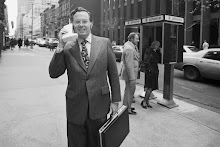You don't have to watch the whole thing -- it's a 1996 Cat Power performance from a UK television program. I like it quite a bit as it illustrates the only consistently good thing about Chan (her voice) and also showcases her occasional talent for writing a good song.
Problem was, I didn't know what this tune was about. I wasn't paying attention to the lyrics at all. When I finally looked them up on the internets they didn't hit me in the gut like I'd hoped they would have. I started wondering whether or not that even mattered. From where should my appreciation derive? Is performance enough? I should probably get it, right? Am I doing this the wrong way?
Okay, so after we watched Taxi Driver I found myself (as usual) on the Crap/Not Crap Electrical forum where some guy wrote:
"First movie to ever make me feel like I was not crazy for feeling alienated and pissed off all the time. Top 5 all time.
NOT CRAP."
I first thought this was completely ridiculous. Travis Bickle should definitely make you feel like you're not crazy, but he sure as hell shouldn't make you feel that way because you identify with his alienation and hostility. He's clinically insane and dangerous. You angsty young men out there in the audience, your bodies full of piss and vinegar, your heads full of literate cynicism and hyperbolic disgust, you may think you are starting to relate to Travis thanks to his abject loneliness and inability with the fairer sex, but please for the love of God stop right there. He's a threat to society. He saved an eleventeen year old whore, but he was hellbent on killing a senator! For no reason. Well, no good reason. I hardly think misdirected sexual frustration is a valid motive for murder.
But then I realized that what's great about Taxi Driver is Marty's ability to subject us to a deplorable character while somehow keeping us from wallowing in said character's delusion and aggressively downward spiral. There's nothing noble or commendable about this guy and yet the movie is so expertly done that you sometimes catch yourself thinking of Travis as strange rather than as a candidate for Bellevue. There's certainly some whoa moments, but they are often understated and non-exploitive. I can't empathize with you if you honestly relate to DeNiro's character, but there's a certain level of frustration, anger, and fear present in this movie that you might find yourself thinking in a manner inconsistent with your rational mind. Taxi Driver is so good that it might make you think it's speaking for you even when the actual events taking place are entirely at odds with your moral compass. Bicks is an anti-hero in the true sense of the hyphenated term, but since the movie never stops being about him and his perceptions it doesn't necessarily debase or belittle him. Taxi Driver is uncomfortable, but I don't think it's pitiful or pathetic until you think about it later.
The point of all this was that my concern about whether or not I was misinterpreting "Nude As the News" seemed to go along with my reaction that the above Albini-fan had misread Scorsese. Upon closer inspection, I really don't think that either is a blatant case of a wrong interpretation. Sure, both could benefit from a more refined analysis, but what's most important about all of this, and what ultimately transpired from our NW Blogspot summit meeting, is that emotional response is the only thing that matters. All I knew was that voice, it made me cry. And that unnamed poster (who is most likely referring to a younger version of himself), all he knew was that Taxi Driver made him feel less alone in this cruel world in which we live. Both are entirely appropriate responses, and are furthermore ones that certainly aren't at odds with the artists' intents. So who cares? And why did I write so many paragraphs on it all? You should watch this movie. Even if you've already seen it 'cause it's really fucking good. Travis Bickle is lonely and pissed-off and alienated and you'll know that right off the bat. Hell, identify with it if you want. Chances are you're a smart cookie (you found to this page, after all!) and you'll get it soon if not now. So stop worrying. Hey, time for South Park. Later!
Congratulations! You have just read the first ever Highland Cinema "blog" post!





4 comments:
The Heavy Duty stance on all art is this: Art is defined as anything created that invokes any emotional response.
Anything from the naturally occuring sunset to this is art.
This artist said it better than I ever could:
The creative act is not performed by the artist alone; the spectator brings the work in contact with the external world by deciphering and interpreting its inner qualifications and thus adds his contribution to the creative act.
— Marcel Duchamp
An erudite post!
This is also considered art.
The only art worth considering.
Post a Comment